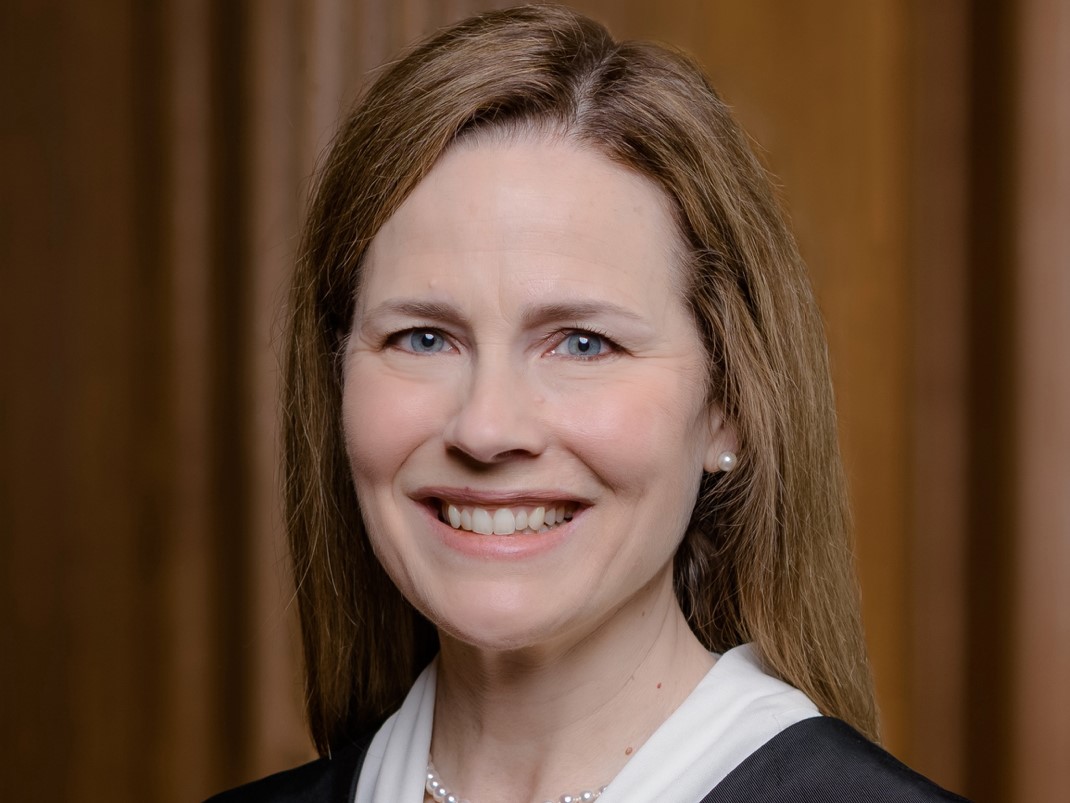
A superstar among legal conservatives, Amy Coney Barrett has had a long career in law as both a distinguished professor and judge. In October 2020, following the death of Justice Ruth Bader Ginsberg, Barrett became the fifth woman confirmed to the U.S. Supreme Court, making her the youngest justice confirmed since Clarence Thomas was elevated to the nation's highest court at age 43. Previously, Barrett served as a circuit judge on the U.S. Court of Appeals for the Seventh Circuit at Chicago. In her three-year tenure on the circuit, Barrett wrote around 100 opinions and issued votes in a wide range of cases that regarded numerous hot-button legal topics, including abortion, gun rights, immigration, discrimination, and sexual assault on college campuses. Born in New Orleans, Louisiana, Barrett almost exclusively attended Catholic schools her whole life, from St. Catherine of Siena for elementary school to Notre Dame for law school. After law school, Barrett started her career as a judicial clerk for Judge Laurence Silberman of the D.C. Circuit and then for Supreme Court Justice Antonin Scalia. In addition, Barrett has worked in both the private sector and academia.
As the daughter of a lawyer, Barrett decided to attend the University of Notre Dame’s Law School, which rewarded her stellar academic record with a full-tuition scholarship. Arriving in 1994, Barrett immediately began to capture the legal community’s attention at Notre Dame. As a student, she served as an executive editor of the Notre Dame Law Review and received awards for having the best exams in ten of her classes. In 1997, she graduated summa cum laude with a Juris Doctor, winning that year's Hoynes Prize. The highest honor granted by the Law School, the Hoynes Prize recognized Barrett as the top student in her graduating class.
Barrett returned to Notre Dame Law School in 2002 as an assistant professor and eventually became a tenured faculty member. In 2017, she accepted her position on the Seventh Circuit in Chicago. Even then, Barrett made time for her alma mater, commuting between Chicago and South Bend to continue teaching courses. Renowned for her expertise in the subjects of federal courts, constitutional law, and statutory interpretation, Barrett was thrice voted Distinguished Professor of the Year at Notre Dame Law School. In 2020, after Barrett's confirmation to the Supreme Court, University President Rev. John I. Jenkins said, “Justice Barrett becomes the first alumna of Notre Dame Law School, and the first Notre Dame faculty member to be so honored. As I said upon her nomination, she is a person of the highest integrity who has epitomized the University’s commitment to teaching, scholarship, justice, and service to society."
